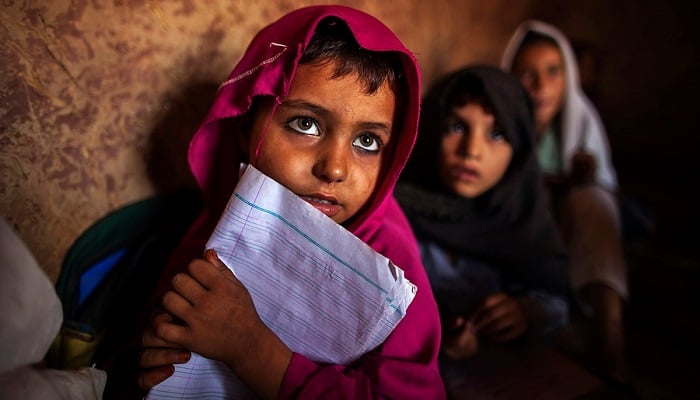World Bank sanctions $150m to bring more Punjab children under education net
This funding will contribute to higher completion rates, increased years of schooling with better learning, WB says
The World Bank’s (WB) Board of Executive Directors has sanctioned financing of $150 million to increase children's participation and reduce the dropout rate in pre-primary and primary schools in Punjab, the global lender said in a press release.
“[The project] Getting Results: Access and Delivery of Quality Education Services in Punjab Project (GRADES) will focus on improving learning outcomes, recovering from learning losses during the COVID-19 pandemic, strengthening the management of schools, and expanding school participation levels,” the IFI said in its handout issued on Saturday.
This funding, the institution added, would contribute to higher completion rates and increased years of schooling with better learning for both girls and boys.
The project is expected to directly benefit approximately 5 million children, 7,000 headteachers, 165,000 teachers, and more than 3,000 teacher mentors in public schools as well as Punjab Education Foundation schools, the World Bank statement said.
“Punjab has more than 7 million out-of-school children. GRADES will help the government of Punjab substantially reduce this number and, in parallel, improve foundational learning outcomes for boys and girls who are already in school,” said Najy Benhassine, World Bank Country Director for Pakistan.
“This will be done through scaling up and strengthening public-private partnerships, improving school preparedness among young children, enhancing the quality and use of teaching and learning materials and assessments, and improving the learning environment in schools,” the WB country director further said.
Given Pakistan’s vulnerability to climate shocks, the project will follow a climate-resilient approach with measures to mitigate the impact of natural disasters, including the construction of approximately 5,400 additional climate-smart classrooms in primary schools, the IFI said.
According to the WB statement, the project will introduce low-cost climate-smart features such as raised plinths and reflective roofs.
"The project will prioritise reconstruction of schools damaged during the 2022 floods, especially girls' schools, overcrowded schools and schools in locations with high numbers of out-of-school children."
In addition, the IFI said that measures to strengthen disability inclusion, such as making school infrastructure more accessible and integrating inclusive education principles in teacher coaching were also part of the project's inclusive design.
"The World Bank and the government of Punjab have a strong history of collaboration on education reform,” said Izza Farrakh, Task Team Leader for the Project.
"GRADES will leverage this partnership for further innovation, such as climate-resilient classrooms and integrating climate change education into the curriculum.
“Reforms such as these will help ensure a safe and conducive learning environment and at the same time prepare the next generation to be more resilient to climate shocks and natural disasters," Farrukh said.
This $150 million approval for the GRADES project comes days after the World Bank approved $1 billion in a second round of additional financing for the Dasu Hydropower Stage I (DHP I) Project.
This financing is aimed at supporting the expansion of hydropower electricity supply, improving access to socio-economic services for local communities, and building the Water and Power Development Authority’s (WAPDA) capacity to prepare future hydropower projects.
“Pakistan’s energy sector suffers from multiple challenges to achieving affordable, reliable, and sustainable energy,” said Najy Benhassine, World Bank Country Director for Pakistan.
“The Dasu Hydropower Project site is one of the best hydropower sites in the world and is a game changer for the Pakistan energy sector. With a very small footprint, the DHP will contribute to ‘greening’ the energy sector and lowering the cost of electricity,” Benhassine added.
-
Bitcoin plummets toward $60,000 as investors dump risky bets
-
Bitcoin crashes below $63K as regulatory pressure and market fears grow
-
Bitwise Crypto Industry innovators ETF: What investors should do in 2026?
-
Nintendo shares slide again as momentum fears grow
-
Gold, silver prices fallen sharply; What’s driving the drop?
-
Gold’s record climb: Experts question if its safety is ‘overstated’
-
Dubai unveils plans to construct street built with real gold
-
Netflix slams Paramount’s bid: 'Doesn't pass sniff test’ as Warner battle escalates












